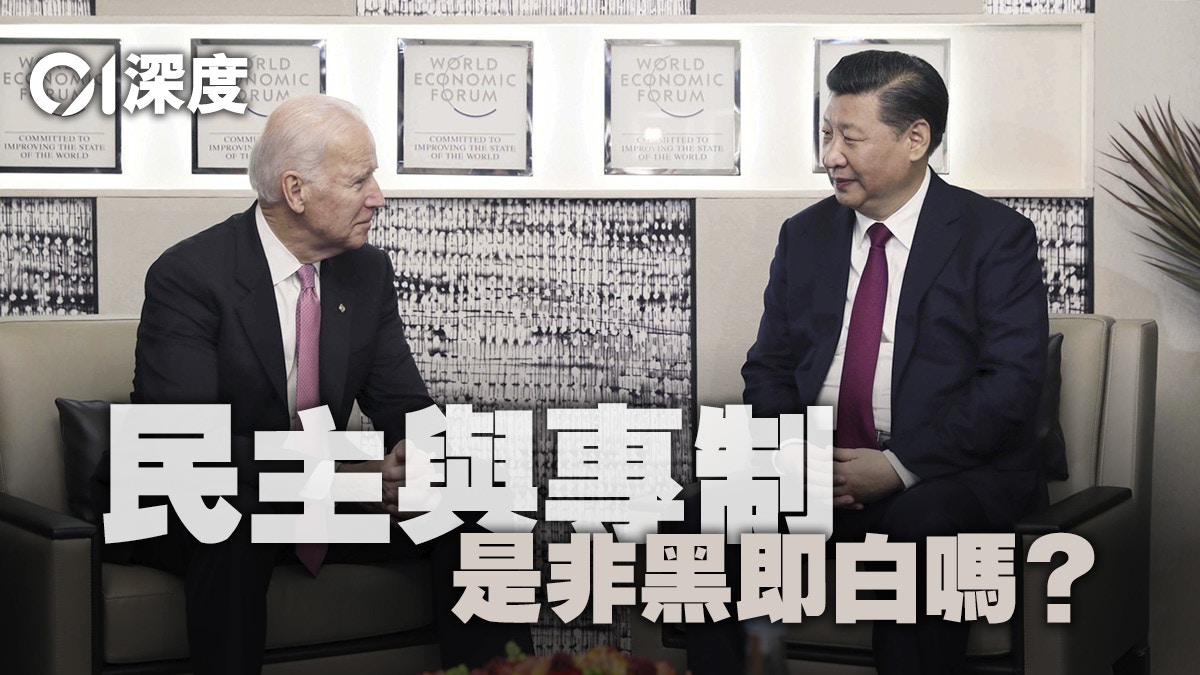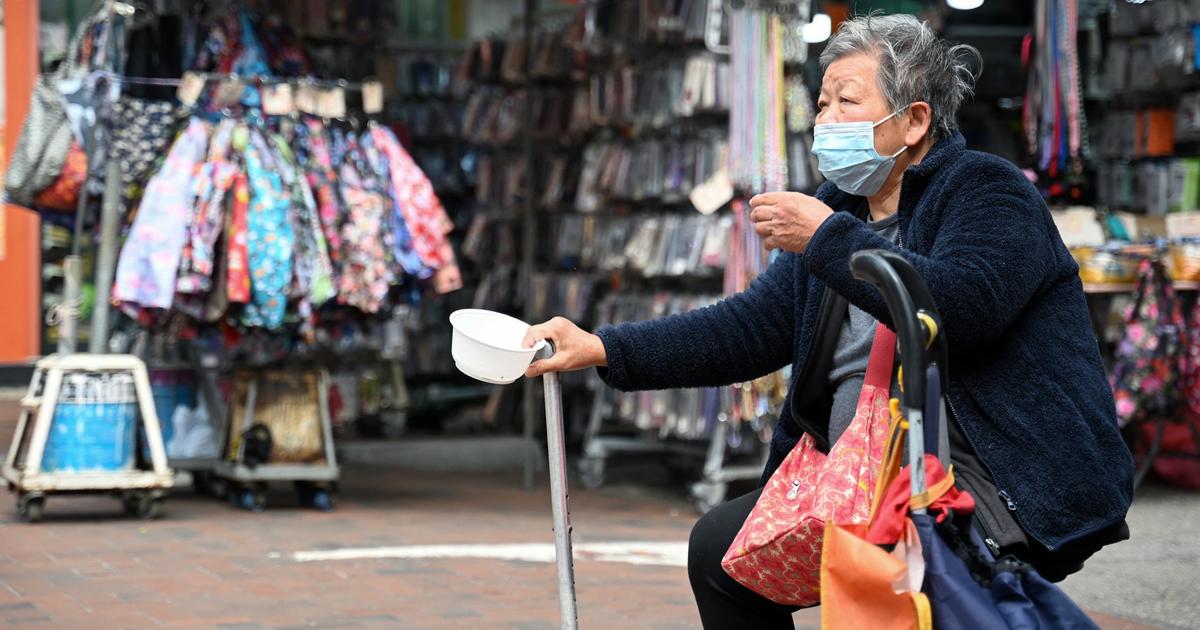On December 4, Beijing time, the State Council Information Office of China published a white paper "China's Democracy". The white paper is divided into three parts: a preface, a main body, and a concluding remark. The main body is divided into five parts with a total of more than 20,000 characters.
In the preface, the white paper begins by saying, "Democracy is the common value of all mankind, and an important concept that the Communist Party of China and the Chinese people have always adhered to." And in the following part, how to evaluate whether a country’s political system is democratic or not. The detailed explanation is carried out effectively and efficiently.
In addition to conventional statements, such as "Democracy is not an ornament, it is not used to make decorations, but to solve problems that the people need to solve", "Whether a country is democratic or not should be judged by the people of this country. It should be judged by a small number of outsiders.” The
white paper also traces the roots of China’s people-oriented thinking and provides a dialectical explanation of the relationship between democracy and dictatorship. The attack on the very few is to protect the majority, and the dictatorship is to achieve democracy," and once again mentioned "beyond the historical cycle rate of the rise and fall of governance", and emphasized the "universal implementation of the tenure system for leading cadres, and the realization of state organs and leadership. The importance of orderly replacement of
The day after the publication of the white paper, the Chinese Ministry of Foreign Affairs website released the report "The Situation of Democracy in the United States". The report focused on the main pages and revealed the alienation and triple disadvantages of American democracy, including: the system is chronically ill and hard to return; the democratic practice is chaotic; the output of the so-called democracy Bad results.
The full text of the report is more than 14,000 words. It contains specific cases, such as the Capitol riots and the Freud incident, and cites authoritative polls, media voices, and scholarly observations to consolidate one's own views.
For example, the report cited the article "The Strange Demise of American Democracy" published by the well-known British scholar Martin Wolf in the Financial Times and pointed out that
the political environment in the United States has reached a point where it is almost irreversible, and the democratic republic has further transformed into authoritarianism.
Another example is the report citing the "Times of Israel" viewpoint that
"The United States, a city on the top, has no more beacon effect."
Beijing has released two reports on democracy in two days in a row, and the meaning of breaking and standing is obvious.
What has broken is the hegemony of American democracy and people's myths, and what has been established is China's "full-process democracy" proposed by Xi Jinping.
There is another big background for Beijing to do so. That is the first online democracy summit to be held in the United States on December 9th. China and Russia were excluded from the summit.
It’s not surprising that the United States held a democracy summit, because when Biden came to power, he defined the 21st century as a contest between democracy and autocracy. Link.
Similarly, it is not surprising that China launched the white papers "China's Democracy" and "American Democracy" at this time. This is a conventional method that China has broken and established.
The key question is whether China and the United States will achieve their respective expected results by doing so.
Let's first look at the U.S. Democracy Summit.
If there is no new crown virus epidemic that has not happened in a century, the democracy summit led by the United States is expected to make many people happy. In addition, Taiwan is invited to participate as a non-sovereign country, and some so-called "democracy fighters" such as Hong Kong Luo Guancong will also attend, adding more More “watch”, but the outbreak of the epidemic and the performance of the United States in fighting the epidemic, as well as the Capitol riots, have forced more and more people to re-examine the United States as a beacon of democracy, including the United States itself.
For example, the New York Times wrote in an article in May this year entitled "The United States can no longer define what "democracy" is",
"The simple Cold War concept with democracy at one end and autocracy at the other end is no longer sufficient. "Need", "The liberal democracies in the world have lost their monopoly on defining democracy, not only because the new authoritarians claim that they have democratic qualifications, but also because—as the Pew Research Center recently stated A study shows that-the vast majority of Americans and French are deeply disappointed in their own political system. Some people don’t even believe that they still live in a democratic country. The same is true of many other European countries.”
On January 6, 2021, supporters of Donald Trump gathered outside Capitol Hill in Washington, which shocked the world.
(AP)
Why is this happening?
The article further explained-"Partly because of the one-year blockade and related restrictions. Because society is affected by fear and uncertainty, people's views on what democratic governance is has been disrupted. In the past year, In many places in the fight against this epidemic, democratic and authoritarian regimes are not as clearly distinguishable as they used to be. People can no longer understand from the type of regime a country how well (or how bad) it responds to the pandemic. . Whether it is democratic countries like South Korea and New Zealand, or authoritarian countries like China, they have successfully dealt with this problem. The type of government cannot predict what kind of restrictions the government will impose on civil liberties or what kind of economy the government will adopt. policy."
Let's look at China's "full-process democracy". This is a new term that Xi Jinping has put forward in recent years.
On November 2, 2019, when Xi Jinping inspected the grass-roots legislative contact point of Hongqiao Street, Changning District, Shanghai, he proposed for the first time that "people's democracy is a whole-process democracy."
In the draft amendments to the "Organization Law of the National People's Congress of the People's Republic of China" and the "Rules of Procedure of the National People's Congress of the People's Republic of China" passed in March 2021, "the whole process of democracy is clearly written into this law-one rule."
On July 1 this year, in his important speech at the celebration of the 100th anniversary of the founding of the Communist Party of China, Xi Jinping specifically proposed to "practice people-centered development thinking and develop people's democracy throughout the process", adding "people" to it. Two words.
The "Third Historical Resolution" passed by the Sixth Plenary Session of the 19th Central Committee of the Communist Party of China also explicitly included "full-process democracy."
If Xi Jinping has been talking about whole-process democracy without interruption, people just listen to it. After all, when it comes to democracy, China is naturally at a disadvantage. It’s almost "reasonable and unreasonable." "However, when the New Office of the State Council released the "Democracy in China" white paper, and officials of the Ministry of Foreign Affairs of China continued to consolidate this concept in public, it was obvious that China was already trying to start a battle for democratic discourse with the United States.
China's greatest confidence is practice, and the resulting people's satisfaction and sense of identity.
For example, the effectiveness of epidemic prevention and control has greatly enhanced the confidence of the CCP and Xi Jinping.
Although the confident CCP is trying to start a battle for the right to speak in democracy, and it is supported by practical practice, this battle is destined to "believe in the faith, and the unbelievers will never believe."
Huang Zonghao, a lecturer at the School of International and Public Affairs of Shanghai Jiaotong University and a researcher at the Taiwan Studies Center, said frankly in an interview with the sister media of "Hong Kong 01" "Multi-dimensional News" that the United States and the West have the upper hand in terms of the right to speak in democracy. very obvious.
The word "democracy" is originally a loanword. For China, there has been no such wording as "democracy" since ancient times.
According to Confucianism, it should be called "people-oriented" or "people-oriented."
So when talking about "democracy" today, the Western world, especially developed countries, have a certain consensus on its connotation.
When talking about "democracy" in China, no matter what kind of packaging and language it uses, whether it is called "full-process democracy" or "consultative democracy," it is the only one, and it is easy to be labeled as "Chinese-style democracy" and difficult to obtain. Western recognition.
Therefore, if China wants to fight for the right to speak on democracy issues, it will be very difficult, and the effect will not be obvious.
Based on this, the
key is not whether to start this battle for democratic discourse power, nor how to start it. The real challenge is how to avoid falling into the trap of "democracy and autocracy."
Of course, Chinese officials can debase the American rhetoric to be worthless, and use diplomats such as Zhao Lijian to pierce the falsehoods under the slogan of American freedom and democracy, or allow Hu Xijin to use both sides to show the superiority of the Chinese system. But None of this is the key. The key lies in the commitment to promote China to truly open, inclusive, and pluralistic. These universal values should not only belong to the "democratic world." What's more, China has practical practices as the confidence, such as completing the world's largest poverty alleviation. Tackling tough problems, the economic growth since the reform and opening up has led China to stand up, become rich, and strengthen step by step.
Democracy is not equivalent to the United States, and autocracy cannot define China. The contest between democracy and autocracy is, in the final analysis, a nihilistic and artificial ideological contest, which has nothing to do with reality. Everyone yearns for freedom and expects democracy, but when democracy and dictatorship are placed on the two ends of the scale and act on politics, they are no longer pure. They have too many purposes. For example, the most direct purpose is to defeat the other side.
The dialectic between democracy and autocracy is the most profound ideological shock left to people by this sudden epidemic, but now it has become a weight in the hands of politicians, once again falling into black and white.














